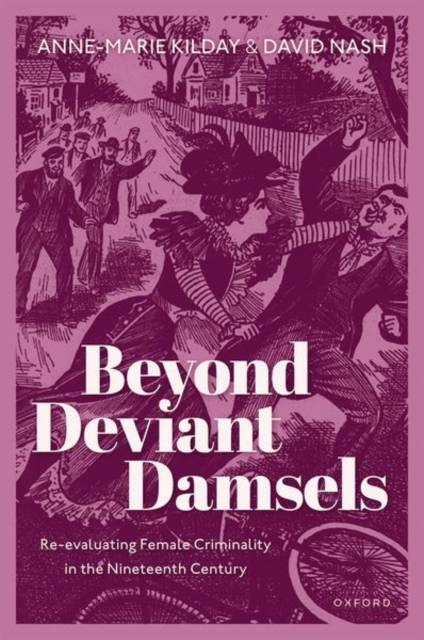
Je cadeautjes zeker op tijd in huis hebben voor de feestdagen? Kom langs in onze winkels en vind het perfecte geschenk!
- Afhalen na 1 uur in een winkel met voorraad
- Gratis thuislevering in België vanaf € 30
- Ruim aanbod met 7 miljoen producten
Je cadeautjes zeker op tijd in huis hebben voor de feestdagen? Kom langs in onze winkels en vind het perfecte geschenk!
- Afhalen na 1 uur in een winkel met voorraad
- Gratis thuislevering in België vanaf € 30
- Ruim aanbod met 7 miljoen producten
Zoeken
Beyond Deviant Damsels
Re-Evaluating Female Criminality in the Nineteenth Century
Anne-Marie Kilday, David Nash
Hardcover | Engels
€ 201,45
+ 402 punten
Omschrijving
Using detailed case studies, Beyond Deviant Damsels undermines many of the conventional assumptions about how women committed crime in the nineteenth century. Previous historical accounts generally constructed gendered stereotypes of women acting in self-defence, being lesser accomplices to male criminals, committing crimes that require little or no physical effort, or pursuing supposedly 'female' goals (such as material acquisition). This study counters these gendered assumptions by examining instances where women tested society's boundaries through their own actions, ultimately presenting women as far more like men in their capacity and execution of criminal behaviour. The book shows examples where women acted far beyond these stereotypes, and showcases the existence of cultural discussion of open-ended female misbehaviour in Victorian Britain - leading us to question the very role of stereotyping in the history of criminality. These individual challenges to a supposed gendered status quo in Victorian Britain did not produce spontaneous outrage, nor were attempts at controlling and eradicating such behaviour coherent or successful. As such Victorian society's treatment of women emerges as uncertain and confused as much as it was determinedly moralistic. From this, Beyond Deviant Damsels seeks to re-evaluate our twenty-first-century perception of female criminals, by indicating that historiography may have been responsible for limiting the picture of Victorian female criminality and behaviour from that time until the present.
Specificaties
Betrokkenen
- Auteur(s):
- Uitgeverij:
Inhoud
- Aantal bladzijden:
- 262
- Taal:
- Engels
Eigenschappen
- Productcode (EAN):
- 9780198830733
- Verschijningsdatum:
- 28/06/2023
- Uitvoering:
- Hardcover
- Formaat:
- Genaaid
- Afmetingen:
- 163 mm x 229 mm
- Gewicht:
- 566 g

Alleen bij Standaard Boekhandel
+ 402 punten op je klantenkaart van Standaard Boekhandel
Beoordelingen
We publiceren alleen reviews die voldoen aan de voorwaarden voor reviews. Bekijk onze voorwaarden voor reviews.









